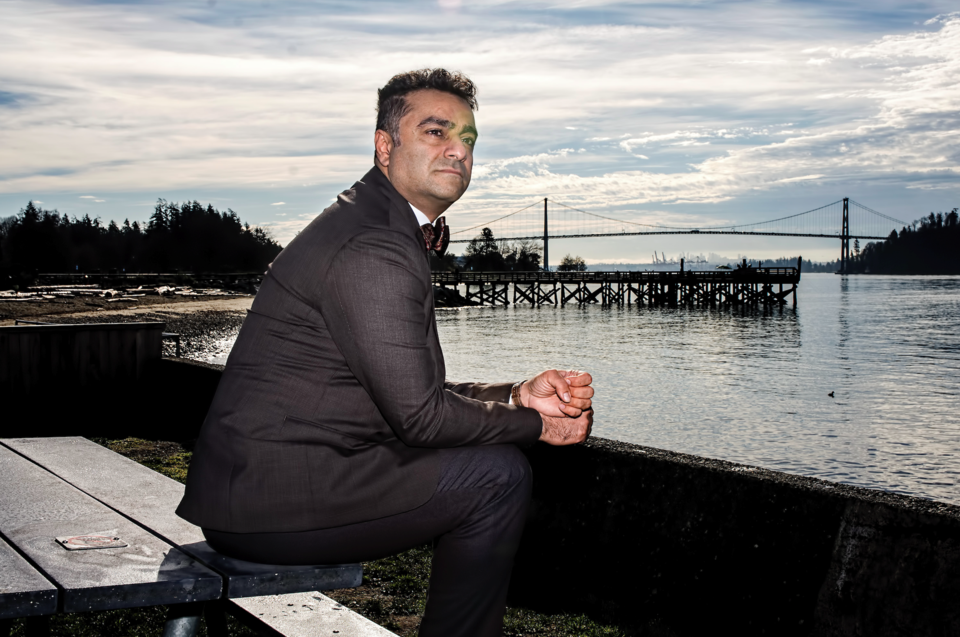Should a lawyer’s mental health struggles be taken under consideration by regulators when there are allegations of professional misconduct?
The answer, unequivocally, from three justices of the B.C. Court of Appeal is, yes.
And so, this month, veteran business and tax lawyer Bijan Ahmadian has found himself back before a Law Society of B.C. hearing panel, after his appeal of professional misconduct findings set a precedent for how mental health evidence must be considered in such cases.
In July 2021, Ahmadian was accused of eight instances of professional misconduct, for concerns about trust shortages, funds borrowed from clients, and non-compliance with trust accounting requirements.
A hearing panel found Ahmadian liable on all eight counts while dismissing claims from Ahmadian — supported by two family physicians — that he had a depressive disorder and anxiety disorder that impacted his capabilities at work.
Ahmadian admitted to breaching rules but not to the extent that they constituted the more serious findings of professional misconduct (a marked departure from standards of practice), since there was no malice or harm to any clients and his judgement was impaired by his disorders.
On appeal to the court Ahmadian won the new hearing in December 2023.
The court found the hearing panel was wrong in declaring medical evidence of a lawyer’s mental health is irrelevant to the determination of whether the lawyer committed professional misconduct, and that the relevance of such evidence is only properly considered at the disciplinary stage.
The court also disagreed with the panel’s assessment that such evidence from family physicians, and not mental health experts, is irrelevant.
Ahmadian’s new hearing includes seven of the eight allegations but also five other counts of alleged professional misconduct for moving close to $2 million through trust accounts without providing any substantial legal services or making reasonable inquiries about the circumstances of the cash. The five new allegations stem from a second citation.
In an interview with BIV Ahmadian said he’s set to face those allegations, which he denies, but pleased his appeal outcome will change the way the hearing panel assesses mental health evidence as it deliberates.
“We have a conclusive decision from the highest court in our province that says mental health evidence is relevant to determining if professional misconduct occurred,” said Ahmadian, who was perplexed the panel dismissed his family doctors’ submissions.
Additionally, the court also criticized the society’s use of the word “misappropriation” in Ahmadian’s citation that described how Ahmadian borrowed money from a client.
“There was no money going into my pocket; the loan was repaid.
“So when we went to the Court of Appeal, we raised this as an issue, and we said, ‘Look, words matter, and there is a person’s reputation that is on the line.’”
The impact of the citation was immediate, said Ahmadian.
“I was canceled at a real estate board conference that I was supposed to speak at because the allegations at the time was that I had misappropriated trust funds.”
Ahmadian said the five-year process, from the onset of the society’s investigation, has taken an immense personal and financial toll.
He said he has spent “hundreds of thousands of dollars” on the process, filed for insolvency and sold his family’s apartment, while raising a now three-year-old son.
“It's important to hold lawyers to account, but it's also, I think, important to recognize and be aware of the impact when a process takes more than five years” said Ahmadian.
But, ultimately, Ahmadian said he is happy he took the original decision to court
“Some people think that I screwed a bunch of folks and now I'm claiming, ‘mental health, let me get away with it,’” said Ahmadian.
“But because our system works based on precedent, what it meant if I did not appeal is that the next lawyer that appears in front of a panel, and brings evidence from their family physician, could be told that in the ‘Ahmadian decision’ the weight that should be given to a family physician’s evidence is lower than a quote, unquote mental health professional.
“And I had a real problem with that,” said Ahmadian, adding the court decision is now being discussed in legal circles across the country and he believes it could apply to other regulators.
“It was a landmark decision. I'm really glad I did it. I think I'll always look back at different accomplishments, and this is one of them.”



